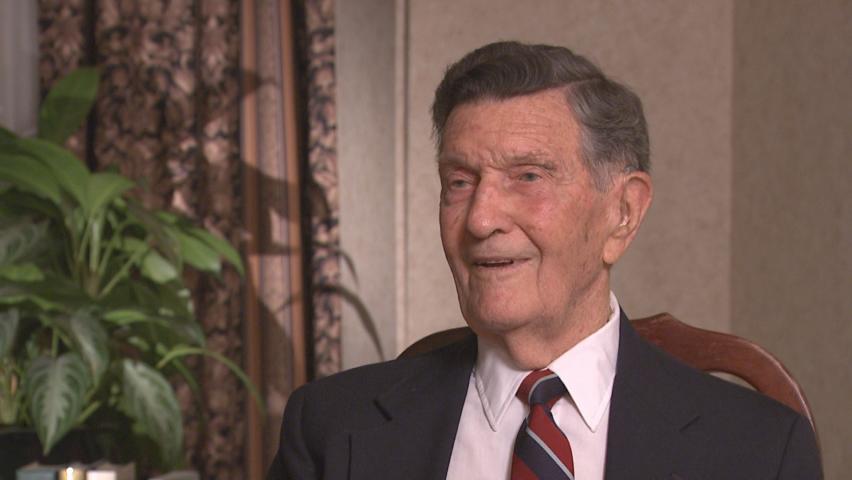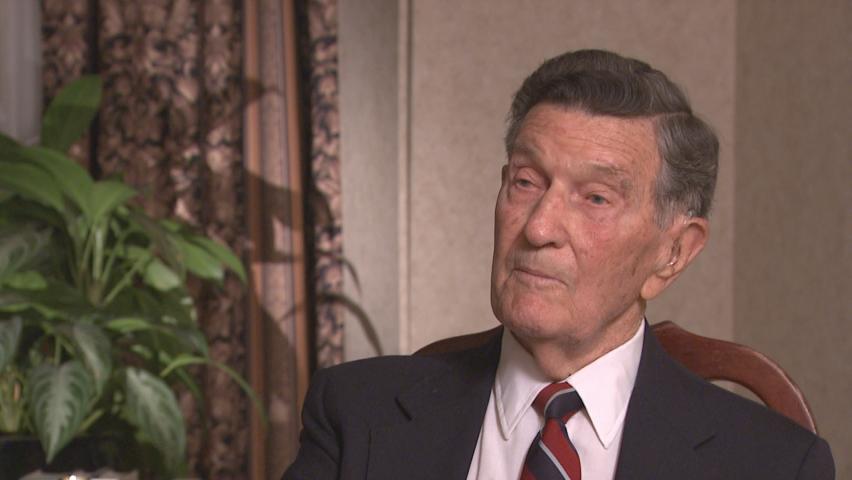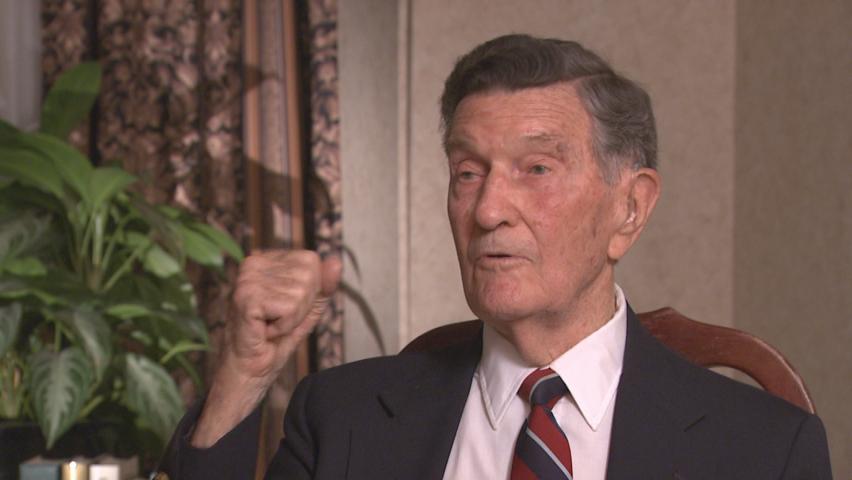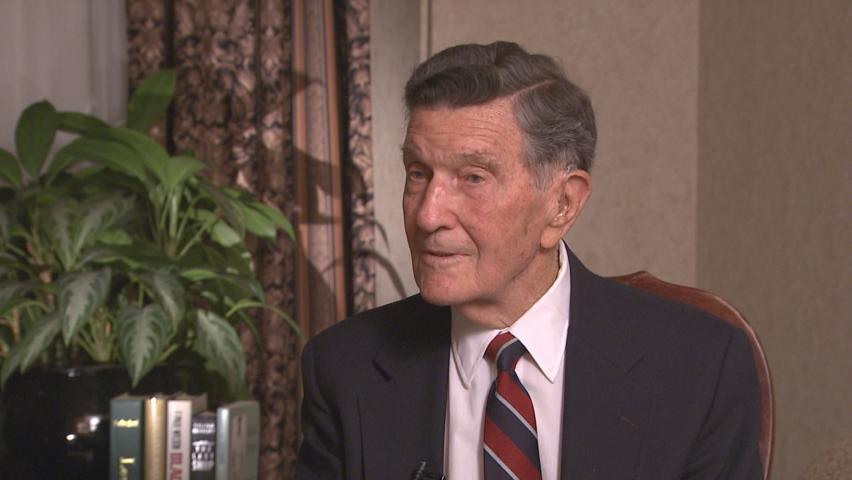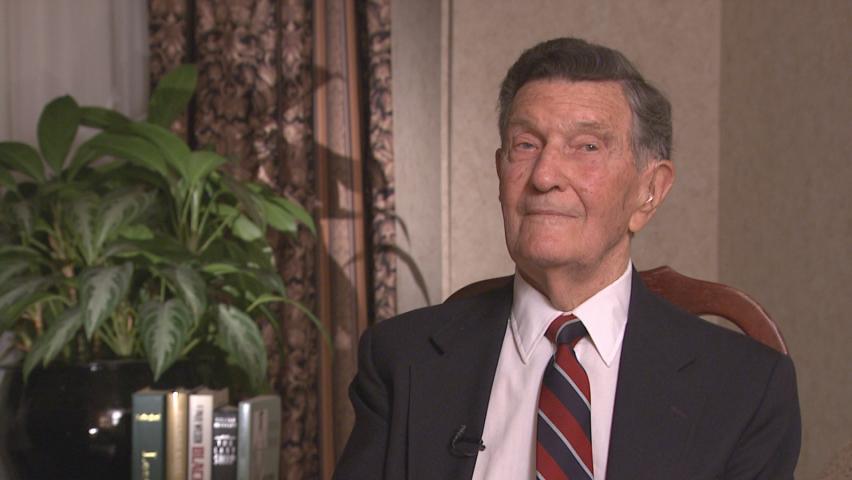Lack of Morale Fibre
Heroes Remember
Lack of Morale Fibre
Transcript
Description
Mr. Watts describes the psychological aspect of being a member of a crew and how some couldn’t cut it.
Jack Watts
Jack Vincent Watts was born on November 10, 1920, and was raised in Hamilton, Ontario, where he enlisted in the Royal Canadian Air Force on July 2, 1940. He flew on Royal Air Force squadrons throughout his wartime service, serving with squadrons 10, 462, 109 and 105. He finished the war as a squadron leader and received the Distinguished Service Order (DSO), the Distinguished Flying Cross (DFC) and Bar. He retired as a brigadier-general in 1975. On his return to Canada after the war, he played in the Canadian Football League with the Hamilton Tigers and the Wildcats. He moved to Ottawa for his service career, and resided there with his war bride, Norma Zelia, formerly of Coventry, England.
Meta Data
- Medium:
- Video
- Owner:
- Veterans Affairs Canada
- Recorded:
- June 1, 2012
- Duration:
- 3:07
- Person Interviewed:
- Jack Watts
- War, Conflict or Mission:
- Second World War
- Branch:
- Air Force
- Units/Ship:
- Bomber Command
- Occupation:
- Navigator
Related Videos
- Date modified:









